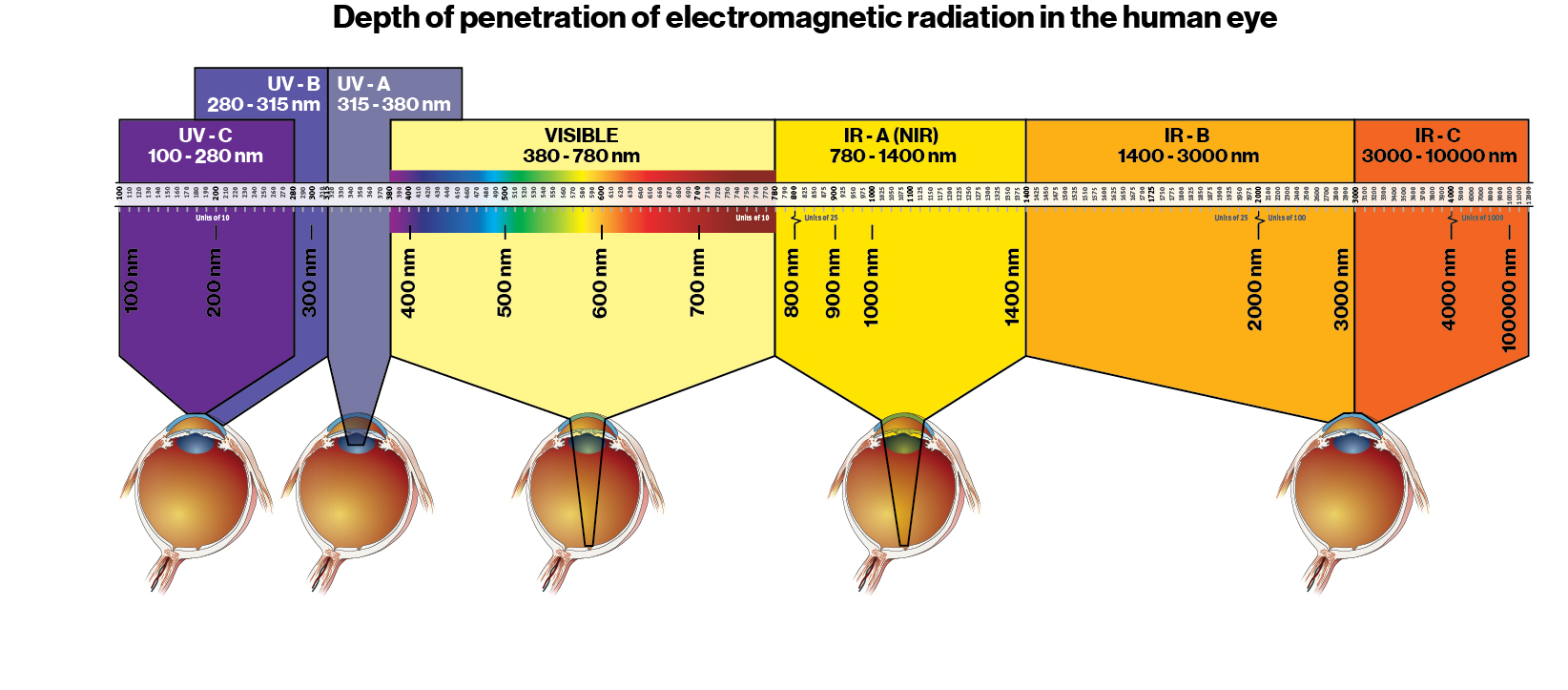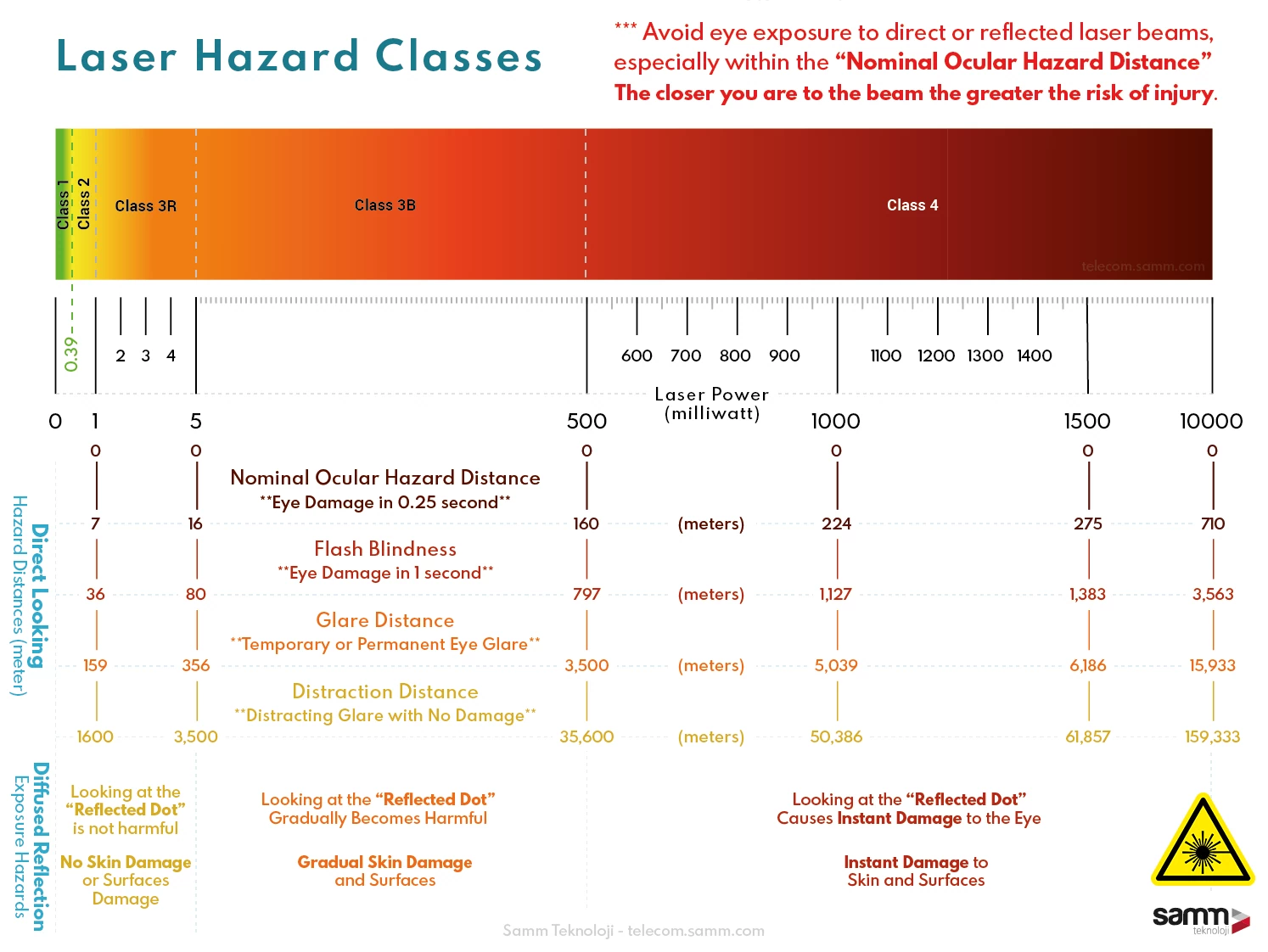Contents

Source: laservision USA
<>
Eye-safe Lasers: Ensuring Safety in Laser Applications
What Makes Lasers Eye-safe?
Lasers with emission wavelengths longer than ≈ 1.4 μm are often referred to as “eye-safe” because their light is strongly absorbed in the eye’s cornea and lens, preventing it from reaching the sensitive retina. This characteristic makes lasers like erbium and thulium lasers safer for use in applications compared to shorter wavelength lasers.
Cornea Absorption and Eye Safety
While strong light absorption in the cornea can lead to damage, longer wavelengths around 3 μm and 10 μm pose a higher risk as the cornea’s absorption length is minimal at these wavelengths. This makes lasers emitting at these wavelengths less eye-safe, despite being safer for the retina.
Factors Influencing Eye Safety
Eye safety is not solely determined by emission wavelength but also by optical power, intensity levels, beam divergence, and beam quality. High optical power levels can still pose a risk to the eyes, even with eye-safe lasers.
Types of Eye-safe Lasers
Examples of eye-safe lasers include erbium lasers operating at 1.5 μm, thulium lasers emitting below 2 μm, and semiconductor lasers in eye-safe spectral regions. These lasers find applications in various fields.
Applications of Eye-safe Lasers
Eye-safe lasers are crucial for long-distance applications in open air, such as laser rangefinders, wind sensors, free-space optical communications, military uses, medical procedures, and more. They play a vital role in ensuring safety while maintaining efficiency.
Conclusion
Understanding the concept of eye-safe lasers is essential for the safe and effective use of lasers in various applications. By considering factors like emission wavelength, power levels, and application requirements, users can ensure the safety of both operators and bystanders in laser operations.

Source: SAMM – Samm Teknoloji
Feel free to comment your thoughts.



